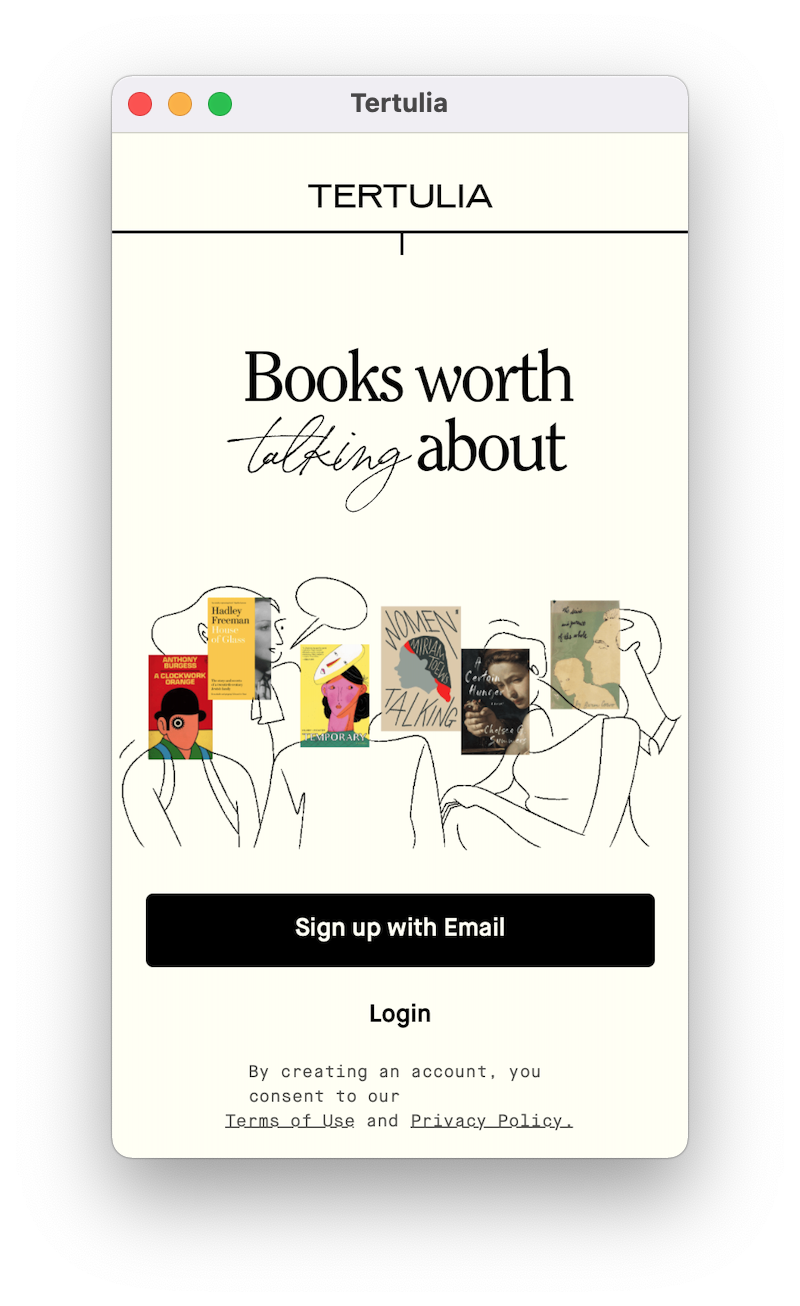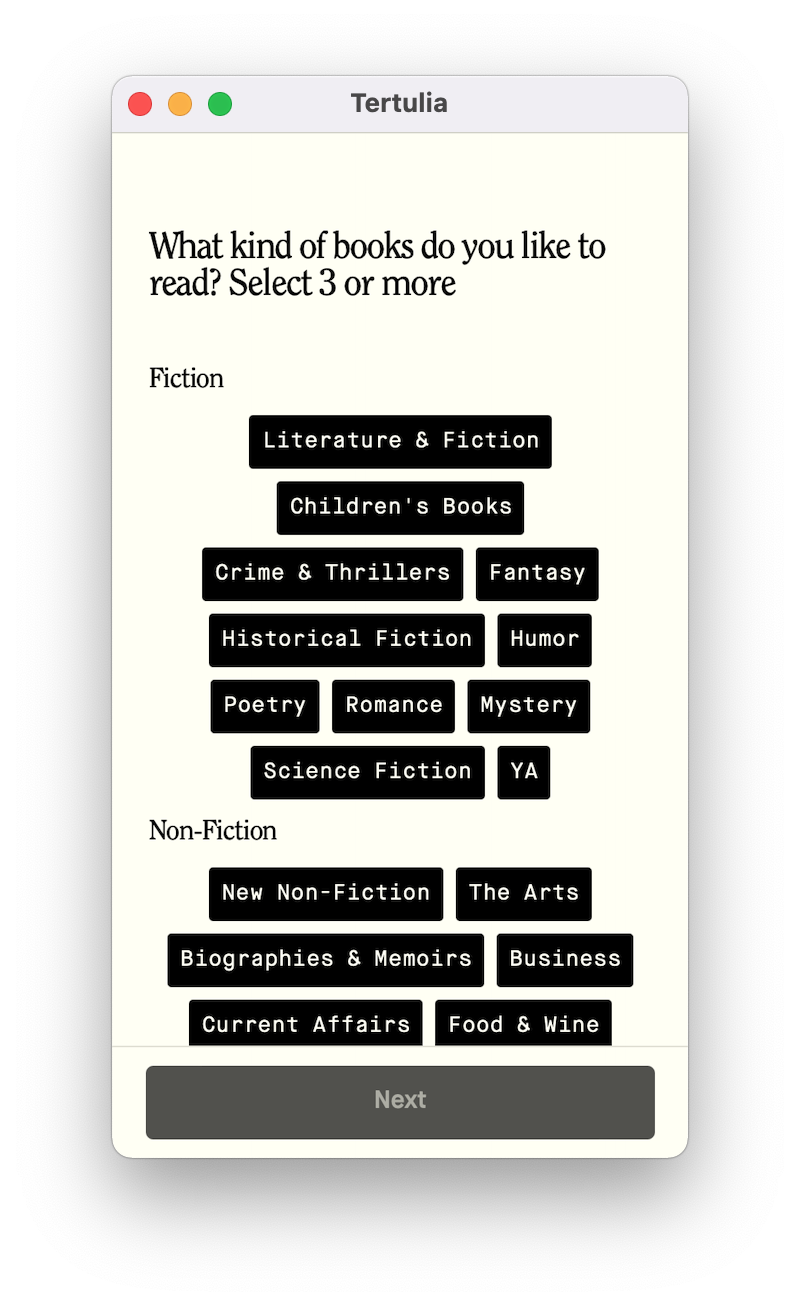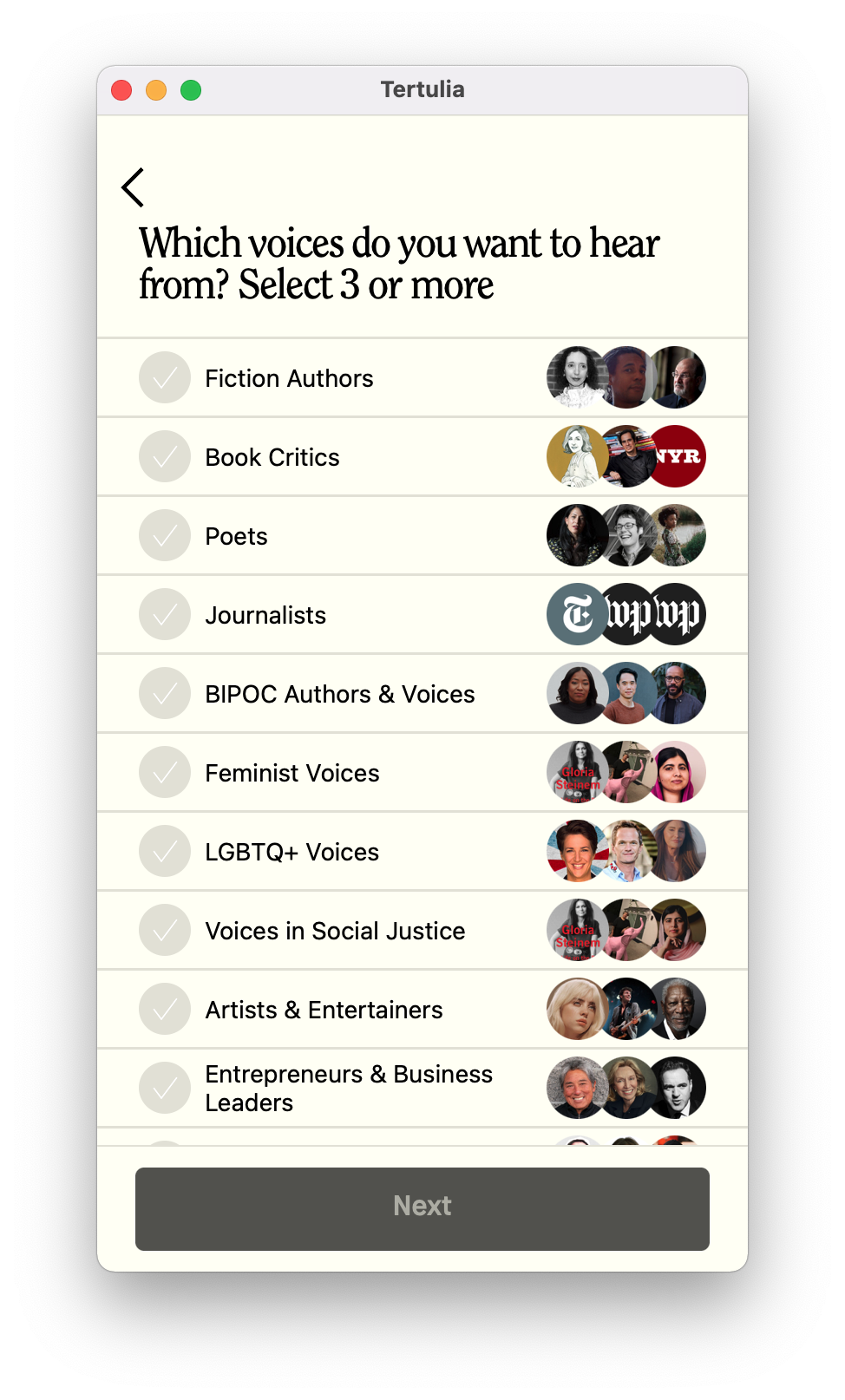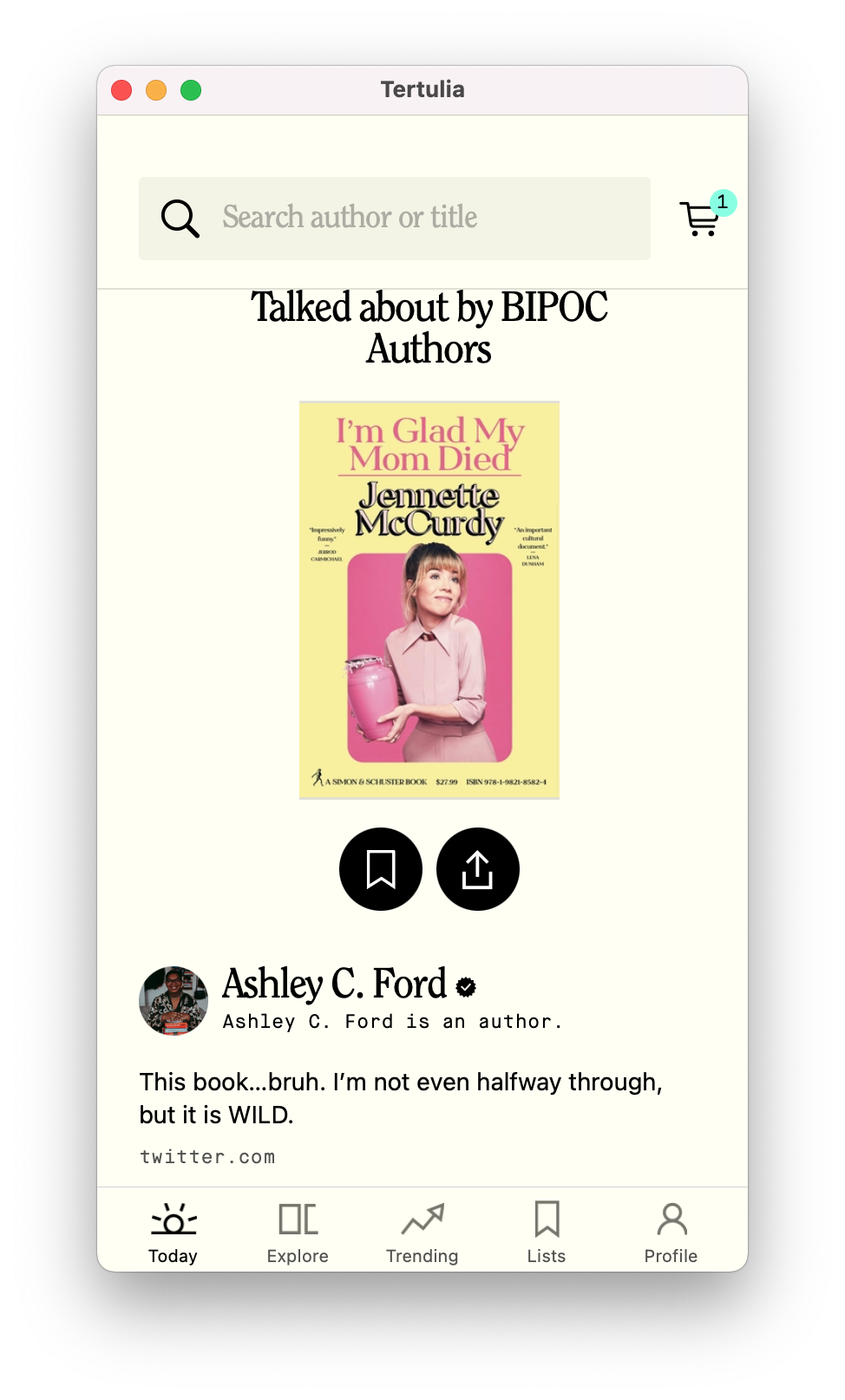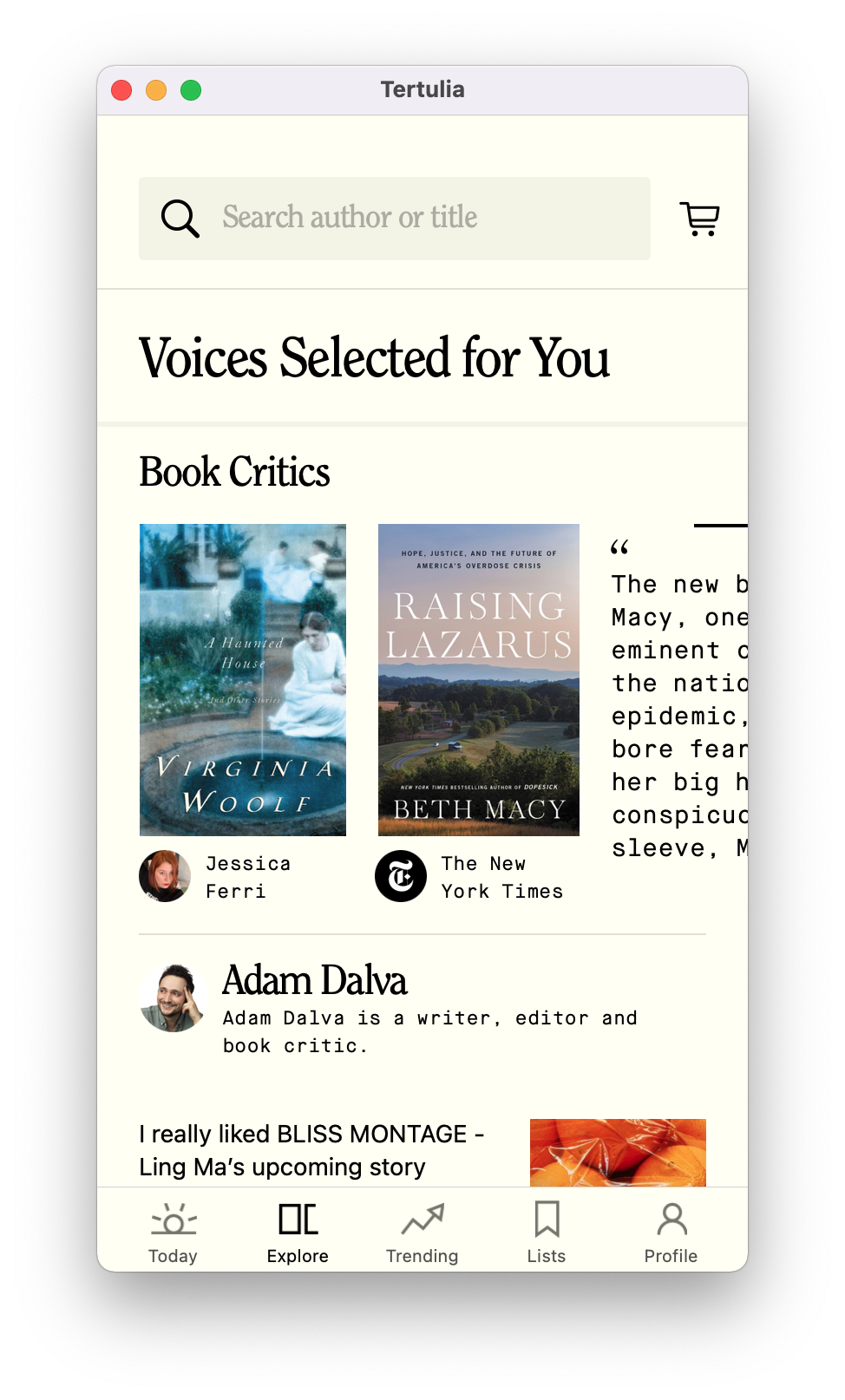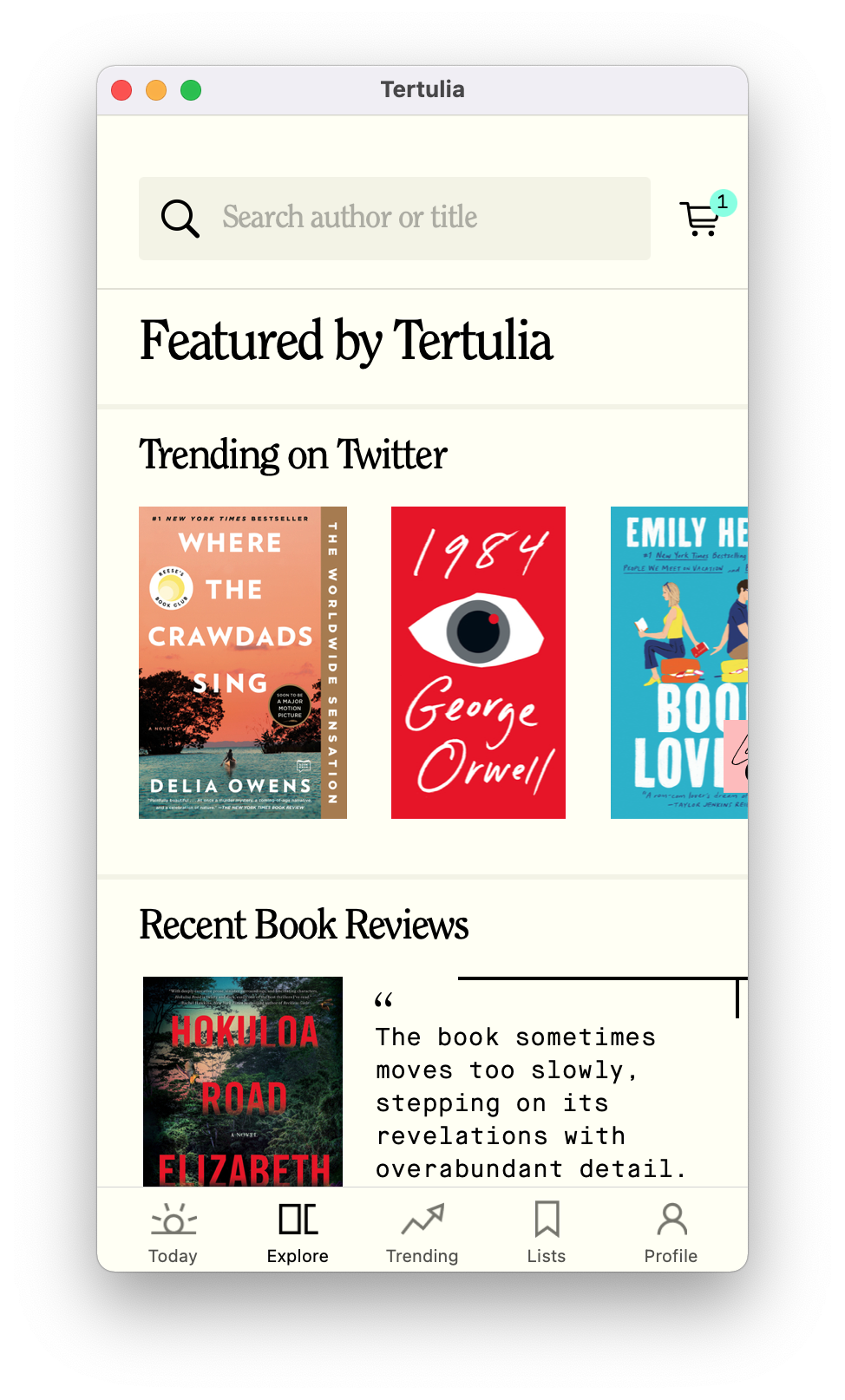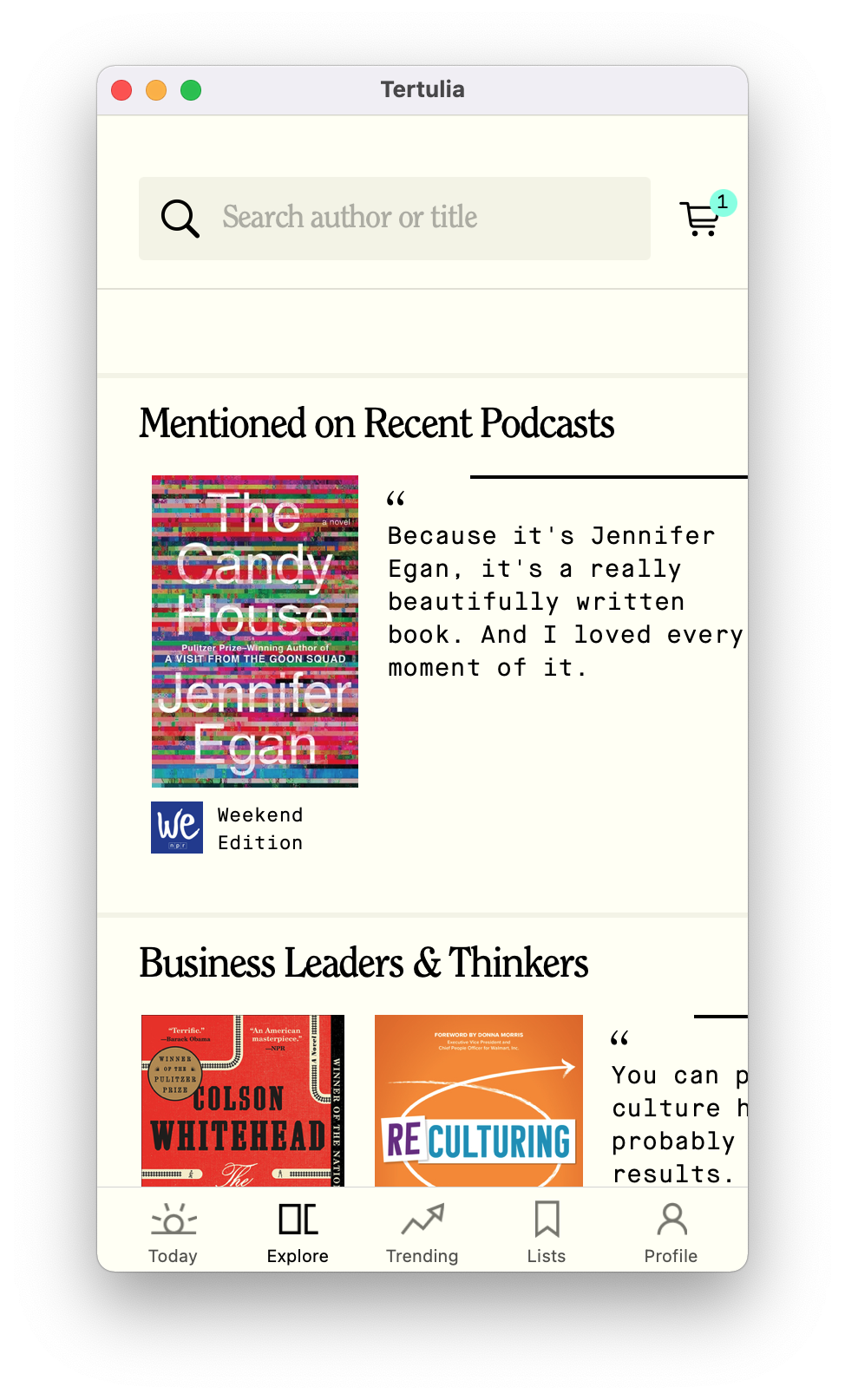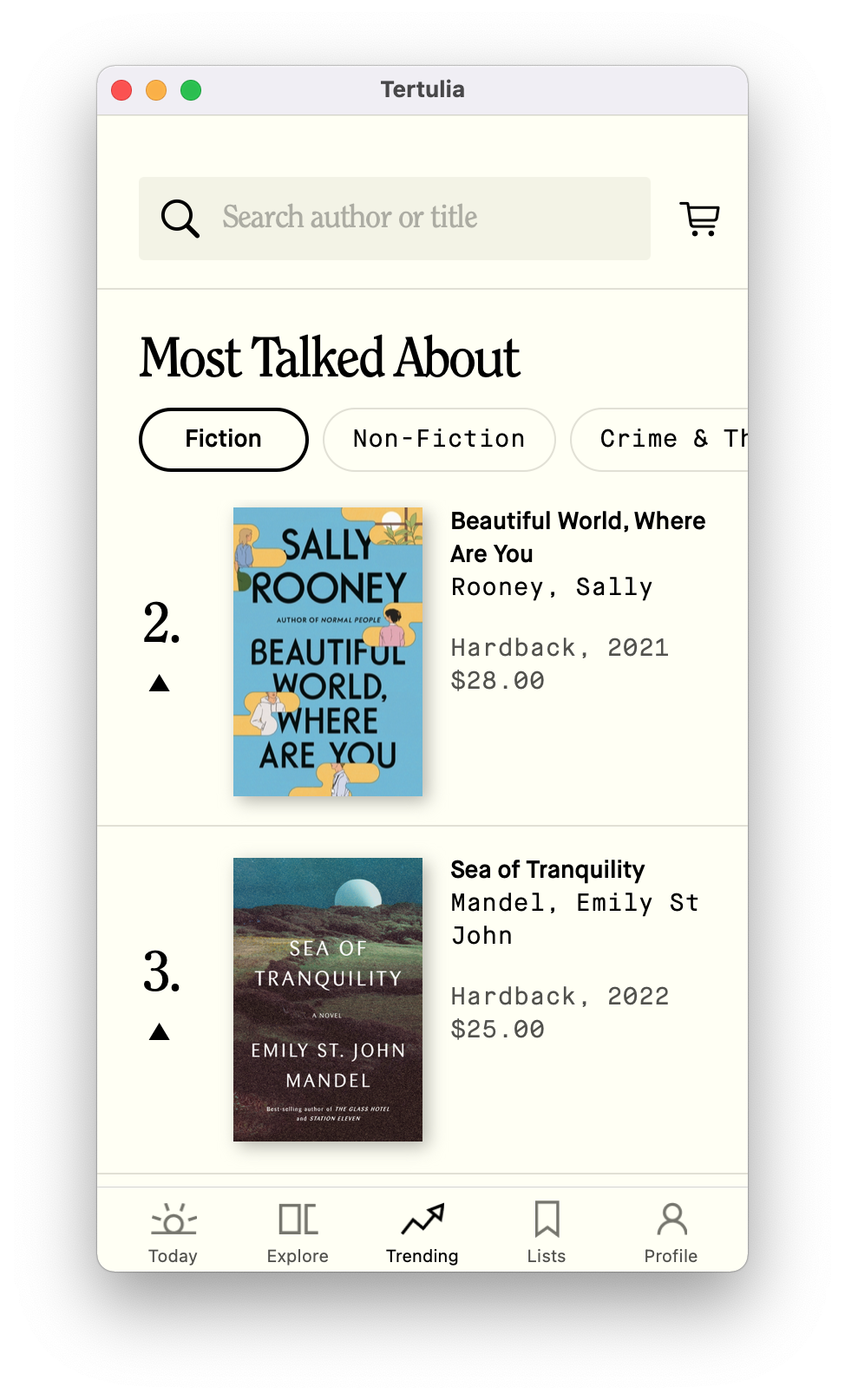In July, the app Tertulia was launched, promising streamlined book discovery. “In a world full of rich discovery services for movies, music, television, and fine art, there is, remarkably, no existing equivalent for books. And that is what we have spent the last eighteen months working on,” says Sebastian Cwilich, one of the app’s founders, in a news release. The app is currently only available on iOS, though. But Cwilich says the web version is coming this fall and the Android app will be launching in 2023. So far, so good. But under the hood, how does it stack up against existing and established bookish apps out there? Well, I tried the app so you don’t have to.
Getting Started with Tertulia
After signing up, the app prompts you to select your favorite genres. There’s also a Featured on Tertulia section that shows the books currently trending on Twitter. The last tab, Profile, shows stuff like settings, genre preferences, orders, shipping and delivery, etc. Strangely, you can’t create a public profile on Tertulia like you can with Goodreads. Since Tertulia is a start-up, it wants potential users to fund it by allowing them to become a co-op member. The benefits of being a co-op member include free (but standard) shipping for orders, discount of 10% for all books, and equity stake in the company. Tertulia says that for every book purchased, readers get a bigger stake. Co-op members also have the ability to weigh in on “company strategic initiatives,” such as which app features they would like to get included and how to improve reader-author relationships. I’m also impressed by how this app pulls data from different sources that are already available on the internet. For readers, that’s somewhat convenient as there would be no need to pull up Twitter and Instagram to keep track of what’s hot and what’s not in the book world. Personally, I find it valuable since I only care about literary discussions on social and not the daily dumpster fire. But if you don’t want its book discovery function, the app doubles as a reading tracker. When it comes to its membership program, meanwhile, the equity stake is 10% for co-op members, with members would only benefitting if they collectively buy books worth $100 million. And there’s still obviously a long way to go for that. Aside from that, there might be other hidden fees in their yearly membership subscription. As of the moment, they are only waived during the introductory free trial period. That means that they could jack up the subscription price come renewal time. Perhaps what’s a bit worrying is that the app is primarily powered by an AI algorithm. It pulls information from social media and other online activities, and as a privacy freak, that feels a bit invasive. I’d like to know how they store my data and if they share them to third parties. Tertulia can be a great tool for book discovery. It offers readers various choices and ease in finding out their next great read. But still, nothing beats human touch, and element present in word of mouth and other interactions that happen offline. Aside from getting book recommendations, these interactions allow you to develop connections with like-minded individuals. I myself found many friends by just attending book signing events, a contemporary equivalent to literary salons from yesteryear. And that’s something that apps such as this can’t replicate.
